The Philip Roth Enigma: An analysis of 'The Human Stain'
This is a more complex answer than you may think, but on the surface Mr. Roth exists as one of the most prolific and important authors of the 20th century. The multiple Pulitzer nominations, the Faulkner award...these speak volumes of his literary works and influence. This Jewish man born into the depression of 1930's New England received France's highest honor in 2013. The Legionnaire Insignia of the French Republic is granted to those have influenced the nation greatly towards better things...Philip did this with a pen to paper.
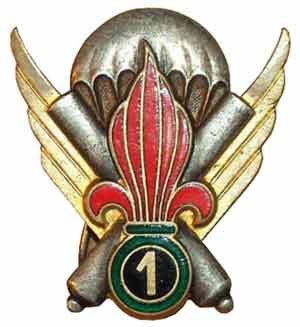
'Portnoy's Complaint' is one of Roth's earliest pieces of writing, and as a young Jewish man growing up in Los Angeles...I felt that Roth had created this world just for me. This was a novel that explained the ins and outs of lust without love, the bitterness of being born to an unforgiving city, and the talk of sex to a young man who really only thought of just that. This was the beginning of my journey into Philip Roth's mind. What started as a recommendation from my uncle over a chess game, led to a lifetime of wondering and searching for this man's next story. As an aspiring journalist myself I always found Roth's grounded writing style more appealing, and in turn more inspiring to the worlds I loved creating and imagining.
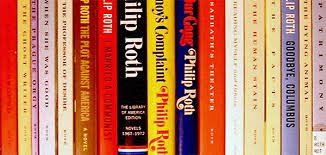
'PR' leaves a bit of himself with each character he creates; 'Operation Shylock' is one of his more well known pieces, and he is able to engage the reader with a protagonist that constantly breaks the 'stylistic fourth wall'. Describing himself as the protagonists's 'doppelganger' and the real life book's author created a confusion and immersion that I have not seen replicated to this day. There is too much splendor in admiration of this man and his willingness to break the mold...at least for me, so let me stop and ask again: Who is Philip Roth?
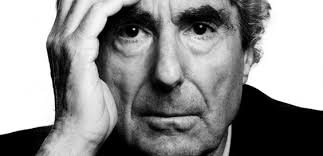
This question is more a riddle that can take a lifetime to solve , and the answer goes beyond 'a man who excels at writing down his thoughts'. Philip molded worlds and was able to blend and contrast the influence of his own small town into larger world issues. His most acclaimed piece of literature came at the turn of the century; in the year 2000 Philip Roth released his novel 'The Human Stain', and many took one step closer to seeing the real Roth. The book peers deep into the way society judges and punishes, and Roth culminated the end of an angst-y and separating 90s decade with his bold and angry take on that time.
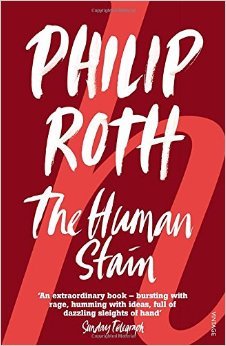
'The Human Stain' is a melancholy story of deceit, and the lengths people will go to in order to hide their true selves. Roth is able to turn a fictional piece of literature into an experience that closes in on reality to a "T". The story takes place in the late 90s and focuses on a middle class American professor named Coleman Silk. He is a man who resides in the Arcadian Mountains of New England, where men go ice fishing and beer drinking year round. His life is told in the third person by our narrator: a young Jewish student named Nathan Zuckerman (with a close semblance to none other than our author). The metaphors remain constant through Roth's books, and he reached his pinnacle as a linguist with this work. The isolation of the dreary New England coast is almost personified in Coleman's loneliness, the cold and unwelcoming air is a consequence of action's beyond human control. Coleman was born to black parents in white skin, and he carries his black soul as deep into the abyss as Orpheus ran.
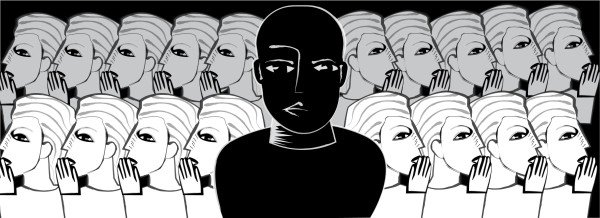
Silk was a respected classics professor at Athena College when he was first accused of racist comments by two black students. The fuel behind emotions can start with mere words: "Spooks: Invisible, not appearing, a ghost or specter. That's all I meant, nothing else." The reader is subjected to making a crucial decision, will the path of the story lay in Coleman's truth or his lie? He told his work superior the truth about the situation, but he knew his resignation was a necessary consequence...Coleman's long time affair with a woman on the janitorial staff was yet another seed that helped root him out of the university. The story of Coleman and his woman Faunia take up nearly half of this dense 361 page novel, and the unravel-lings of this love story lead to an unforgettable climax that polarized masses and made people realize Roth was more an author of divine truths than anything else...
Faunia is an illiterate woman who grew up poor, she found Coleman a few years into her position as one of Athena's janitors and fell for his kindness towards her. Coleman kept their relationship a secret just like he did his roots, but she was fine with all the decay when she stared into his pale eyes. The past always catches up though, and Roth makes sure we know this each time out in his stories. The death of Coleman Silk and Faunia Farley comes abruptly, and shockingly. Faunia's ex husband Les was one of the many 'stains' on her reality, but he was a consequence bred from the death of his children...the children he bred with Faunia. The children passed in a structure fire when Faunia was to be watching them with a close eye, Les was fueled by rage and jealousy and ended two people who Roth didn't feel deserved to live. The last chapter is an eye opener to Philip's true self, and allows the reader to step one inch closer to my question...who is this man? 'The Purifying Ritual' is the last chapter of this novel, and it addresses a resolution. Of all the grim conflict and war with self, Coleman found death as the easiest way to purge the world of his 'stain'. He knew his secret was not one to hide, but he carried his soul as a burden...and the universe can not allow that without consequence.

A brilliant man named Carl Sagan said "..if it can be destroyed by the truth, it deserves to be destroyed by the truth." Philip Roth is a leader in this outright thinking just like his astral brother Carl; why hide truths when enlightenment is a real place? Roth's life and stories are heavily inspired by the Talmud and Judaic teachings, a lot of his metaphors and meanings come from prophets and scriptures of the past. I wish I could provide an answer to the question posed at the top of this introspection, but I can not tell you who Philip Roth is because I am still seeking myself. I can tell you that Philip has helped me make decisions in being outright with my faith and beginnings, and that I gain courage with his words. From Nathan Zuckerman to Philip Roth, and Coleman Silk to every reader who envelops this world, we all carry our own stains. Hillel the Elder is a famous prophet of the Jewish Talmud, he is the Confucius of Judaism (if you will). He once said: "If I am not for myself, who is for me? And being for my own self, what am 'I'? And if not now, when?" Do not hide that which is most fragile, because we have only one life to live.
Nathan Zuckerman is the liaison to us through Roth, and you realize the similarities in both their ideals are just too close to count out. Nobody should hide their true self, but it can be a beautiful thing to know someone only through their words.
"And Hey Mr. Zuckerman-the book"
"What book?"
"Your book. Send the book."
"You got it," I said, "it's in the mail"
Upvoted, check out the new music page @vandalizmrecordz
i voted you
i am new on steemit upvote me on this
https://steemit.com/intro/@kaneifer/i-am-new-on-steemit-welcome-me